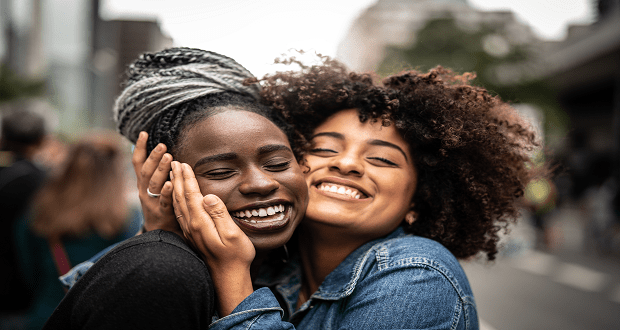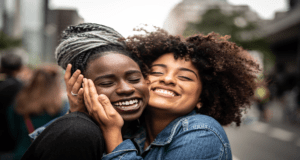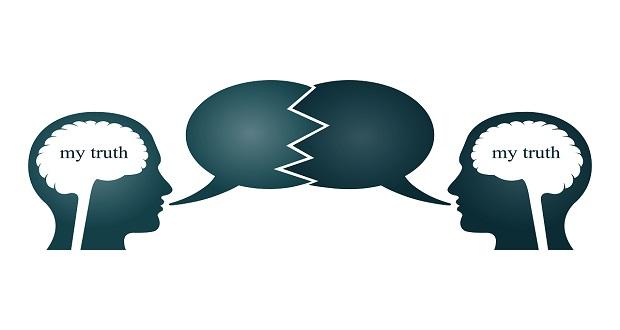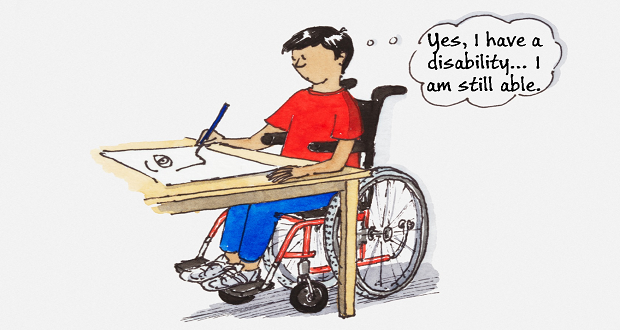As if I weren’t already a huge Gabrielle Union and Ellen Pompeo fan, their recent talk on diversity, pay inequity, and race within their industry, alongside Gina Rodriquez and Emma Roberts, absolutely sealed the deal. The actresses boldly and authentically talked about everything from intersectionality, to understanding privilege and being an ally, and effecting change within your sphere of influence. In today’s Buzz, I pulled out a few takeaways that resonated with me most, but I encourage you to view the interview (embedded below) on your own.
Know & name your privilege:
Perhaps one of the most powerful moments for me as I tuned into the discussion was when Ellen opened up the conversation acknowledging her privilege. She affirmed that even in the context of discussing gender pay inequity in Hollywood—something that she has been impacted by—she still struggles “a lot less than people in [lower-paying] jobs.” Affirming that reality did not discredit or undermine the validity of her experience as a woman in Hollywood, rather, it honored the complexity of systems of oppression: that oppression is interconnected, and wherever it exists, there will always be some more impacted than others. And while we may have our own individual experiences, impacted by inequitable, unjust systems, we must still be mindful of the experiences of those who are even further in the margins.
What does that mean for me? As a black woman who is also cis-gendered, heterosexual, and socioeconomically privileged, it means knowing and naming that there are many things that I don’t need to think about on a daily basis (e.g. being mis-gendered or concerned with where I’ll sleep tonight). It means being mindful as a facilitator/external consultant, that even as a black woman, my current experience may be very different from the people of color and other black women who work within organizations where they are “the only.” It means going into these spaces, being aware of and calling out that there’s privilege in working as a consultant where I’m [no longer] directly impacted by the day-to-day nuances, micro-aggressions, inequities in the workplace that take a toll.
In essence, it means knowing that those areas where I have privilege do not negate other areas where I may not.
There is power in the collective
Another impactful moment during the segment was when Gabrielle shared a story where she and several fellow actresses up for the same role repeatedly turned down a disappointing offer in order to ensure the frontrunner got the offer she deserved. “I lose nothing by making sure you get your money,” she shared.
I saw this as a powerful example of solidarity, and a reminder that there is power in the collective. While Gabrielle did not consider this a sacrifice—as she said, she lost nothing—I think it’s worth noting that sometimes solidarity may require making a sacrifice and prioritizing the collective interest over individual gain. She was specific in sharing that in this instance, the women were other black actresses—as individuals they have all (and continue to) experience pay inequity at the intersection of race and gender [oppression] in the industry. But in this situation, they were able to use their collective power to disrupt the status quo and interrupt the system, to the benefit of their sister. Wow.
Your circle must match your allyship.
Gabrielle Union dropped a gem to hold us all accountable when she said, “You cannot center or amplify a voice that is not real or valid in your personal life… If I wasn’t interacting daily with and have deep friendships with every marginalized group, I would have a really hard time passing the mic…and also have a hard time seeing their humanity.” Such. A. Gem.
In essence, she is reminding us all that true allyship requires we expand our circles and networks to include genuine and authentic relationships with the groups of whom we consider ourselves allies. At The Winters Group, we call this Exposure and Experience—two critical components of developing cultural competence. Exposure refers to our contact with difference, whereas experience is creating meaningful, transformative interactions across differences. Being an ally means listening, amplifying, and centering an experience that is different from your own—and that requires authentic connection & relationship.
You can be grateful and still know your worth.
My last and final takeaway was grounded in the shared experiences of Gabrielle Union and Gina Rodriguez, where they recounted situations when they felt reluctant to speak up against pay inequity or lack of diversity because they felt they should be ‘grateful’ just to be in the room (or on the set). Both shared that speaking up required courage and bravery that earlier in their careers was difficult to project as women of color in the industry. I could 100% relate to this. I have felt this myself (more so) earlier on in my career and have heard similar sentiments from my peers. We convince ourselves that we should “go along to get along,” because “at least we’re doing better than some others,” and therefore, should be “grateful” more than anything.
The thing is—we can be grateful AND know our worth. We can be grateful AND still be valid in our critique of the rooms we’re in, and critical of the systems we’re benefiting from (and still being oppressed by). We can be grateful AND still command what we deserve and do so unapologetically (if we want to and feel empowered to do so). Both Gabrielle and Gina honored the courage and bravery required to speak up, and how they’ve grown in their capacity to do so over the years. In true ally fashion, Ellen Pompeo chimed in on the role of white people in challenging the status quo and speaking out against inequity in “every single room” they walk in—another key takeaway…another reason to be an Ellen fan.
The thing is—we can be grateful AND know our worth. We can be grateful AND still be valid in our critique of the rooms we’re in, and critical of the systems we’re benefiting from (and still being oppressed by). Click To TweetAll in all, the dialogue was so refreshing to experience. It was indicative of the power in connecting and dialoguing across differences, and the beauty in affirming our experiences, while also holding ourselves and others accountable to doing this work. We need more it.




















